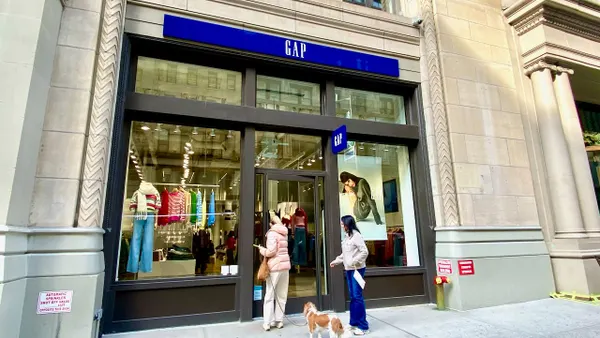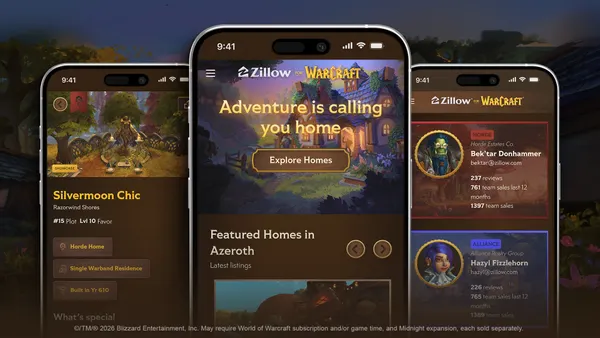Brief:
- 5G smartphones nearly quintupled their market share from 3% of total U.S. mobile phone sales in January to 14% in August, per study results announced by Counterpoint. The researcher forecast that sales will climb faster after Apple releases a 5G version of the iPhone 12, as the tech giant is expected to do at its "Hi, Speed" virtual event on Oct. 13.
- Consumers are showing increased interest in 5G phones as prices steadily decline. The average selling price (ASP) of 5G phones was $730 in July, a $300 drop from a year earlier. Samsung's rollout of the Galaxy A71 5G for less than $600 in June and A51 5G in August for about $500 is helping to lower prices, according to Counterpoint.
- Apple is the market leader in the U.S. with about 46% of the smartphone market, and the release of a 5G iPhone is likely to drive adoption of the next-generation wireless technology that could help marketers drive customer engagements. By next year, 5G phone sales will make up 20% of total smartphone market in the U.S., Counterpoint forecast.
Insight:
5G mobile service is finally starting to gain traction as device makers release lower-priced smartphones and cellular networks gradually build out their higher-speed networks, Counterpoint's research suggests. For mobile marketers, the next-generation services is expected to improve the user experience (UX) with faster download times for multimedia content including videos, games and augmented reality (AR). Those improvements will give marketers more tools to engage consumers with brands on connected devices.
Apple's highly anticipated introduction of a 5G iPhone could drive an upgrade cycle, though just how big the upswing will be is debatable. AT&T CEO John Starkey last month provided a somber assessment of the outlook, saying that the pandemic's negative effect on the economy may hobble demand. He also said that many customers aren't going to see immediate improvements in service speed, Bloomberg News reported. Unless consumers see a noticeable difference in service, they may hold off on buying a new smartphone during the key holiday sales season.
The major U.S. mobile carriers are in various stages of rolling out 5G service nationwide. T-Mobile, which this year merged with Sprint, was the first cellular company to offer 5G service in all 50 states, and now has a coverage map of 225 million people, CNet reported. AT&T announced in July that its 5G service covers more than 205 million people after expanding to all 50 states, while Verizon's 5G service is available in parts of 36 cities nationwide.













